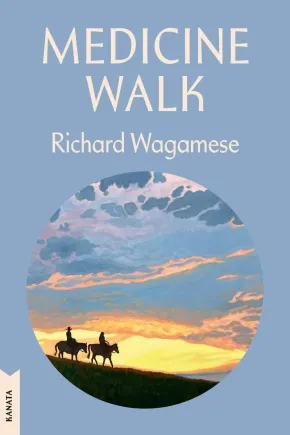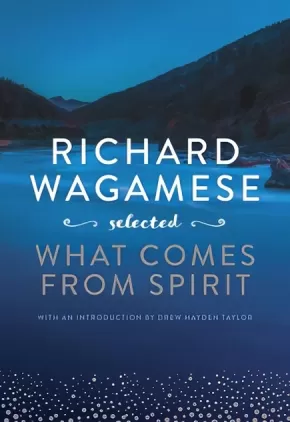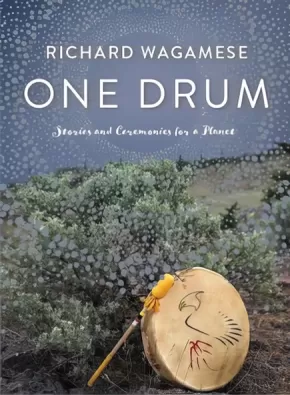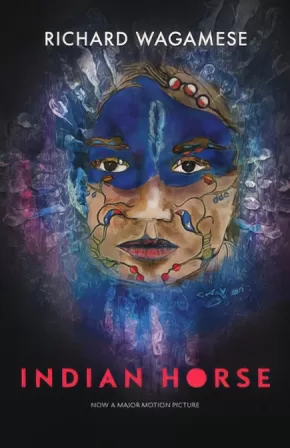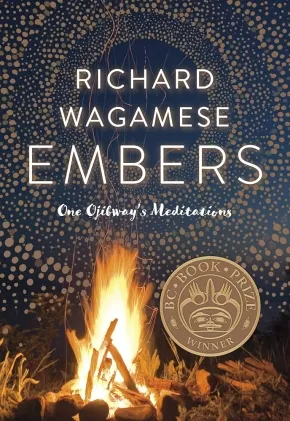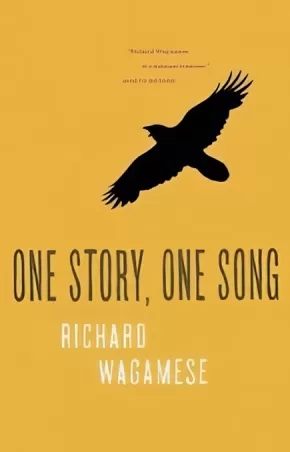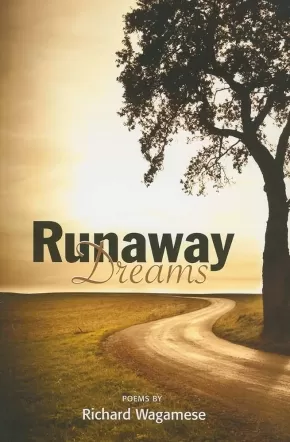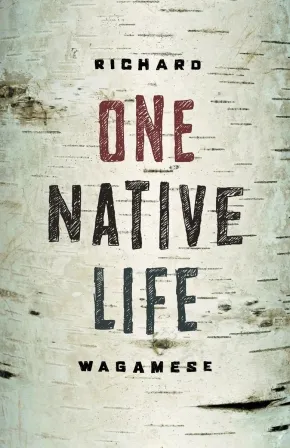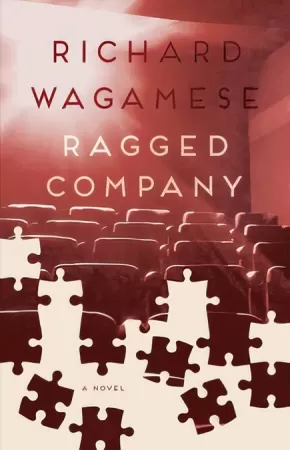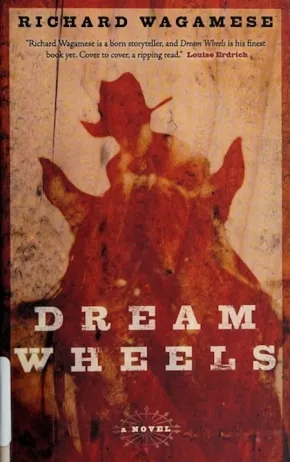Wabaseemoong First Nation
Synopsis:
By the celebrated author of Canada Reads Finalist Indian Horse, a stunning new novel that has all the timeless qualities of a classic, as it tells the universal story of a father/son struggle in a fresh, utterly memorable way, set in dramatic landscape of the BC Interior. For male and female readers equally, for readers of Cormac McCarthy, Thomas King, Russell Banks, and general literary.
Franklin Starlight is called to visit his father, Eldon. He's sixteen years old and has had the most fleeting of relationships with the man. The rare moments they've shared haunt and trouble Frank, but he answers the call, a son's duty to a father. He finds Eldon decimated after years of drinking, dying of liver failure in a small town flophouse. Eldon asks his son to take him into the mountains, so he may be buried in the traditional Ojibway manner.
What ensues is a journey through the rugged and beautiful backcountry, and a journey into the past, as the two men push forward to Eldon's end. From a poverty-stricken childhood, to the Korean War, and later the derelict houses of mill towns, Eldon relates both the desolate moments of his life and a time of redemption and love and in doing so offers Frank a history he has never known, the father he has never had, and a connection to himself he never expected.
A novel about love, friendship, courage, and the idea that the land has within it powers of healing, Medicine Walk reveals the ultimate goodness of its characters and offers a deeply moving and redemptive conclusion.
Wagamese's writing soars and his insight and compassion are matched by his gift of communicating these to the reader.
Reviews
“In Medicine Walk, Wagamese manages the nuances of betrayal and redemption with uncommon artistry. It is a breathtaking novel of sorrow, hope and polished steel.” – Thomas King
“A deeply felt and profoundly moving novel, written in the kind of sure, clear prose that brings to mind the work of the great North American masters; Steinbeck among them. But Wagamese's voice and vision are also completely his own, as is the important and powerful story he has to tell.” – Jane Urquhart
“Medicine Walk recounts the mythic journey of an estranged father and son who are searching for reconciliation and love. Richard Wagamese’s novel renders the Canadian wilderness with staggering insight and beauty. The same can be said for his understanding of the fragility, wildness and resilience of the human heart. Magnificent.” – Lisa Moore
“Medicine Walk is a masterpiece, a work of art that explores human interconnectedness with a level of artistry so superb that the personal becomes eternal.” – National Post
“A moving story…. Wagamese balances the novel’s spiritual and political subtexts with sly humour, sharp, believable dialogue and superb storytelling skills. Medicine Walk is a major accomplishment from an author who has become one of Canada’s best novelists.” – Toronto Star
“This is very much a novel about the role of stories in our lives, those we tell ourselves about ourselves and those we agree to live by…. Wagamese understands that the stories we don’t tell are as important as the ones we do….But Medicine Walk is also testament to the redemptive power of love and compassion.” – Globe and Mail
“One of the finest novels of the year…. Medicine Walk is not only a graceful book, it is a novel of grace, of coming to terms with hidden truths, of coming to know the secrets behind forbidding appearances, of finding the humanity within strangers.” – Vancouver Sun
“An essential read…. Superbly written.” – Now Magazine (NNNN)
Educator & Series Information
This edition of Medicine Walk is part of the Kanata Classics series, which celebrates timeless books that reflect the rich and diverse range of voices in Canadian literature.
Grades 10-12 BC English First Peoples resource for units on Childhood, Place-Conscious Learning, and Family.
Additional Information
256 pages | 5.50" x 8.25" | Paperback
Synopsis:
The volume brings together two previously published novellas by Richard Wagamese, Him Standing and The Next Sure Thing, with a foreword from author Waubgeshig Rice. Both stories follow the lives of young men who have dreams for a better future. In their search for fame and fortune, Cree Thunderboy and Lucas Smoke end up on paths where their biggest challenge is staying true to themselves.
In Him Standing, Lucas Smoke learns the art of carving from his grandfather. He discovers that he is a natural; he can literally make people come to life in wood. But when Lucas is asked to carve a spirit mask by a mysterious stranger, he quickly learns that his skill with a knife could cost him his dreams.
In The Next Sure Thing, Cree Thunderboy has two things he does well: playing blues guitar and picking winning horses at the track. Picking winners is just meant to be a means to an end—Cree's goal is to make his living playing the blues. He meets a powerful man at the racetrack who convinces him he can parlay his special skill with the horses into a shot at the fame and fortune he seeks.
Celebrated author Richard Wagamese artfully crafts these thrilling yet vulnerable stories of two young men trying to find their place in the world.
Educator Information
Themes: Indigenous, Coming of Age, Own Voice, Carving, Horse Racing.
Both stories in this collection are about a young Indigenous man trying to find his way and leaning on his background and culture to help him.
Both Him Standing and Next Sure Thing have a surreal or magical element.
Recommended in the Canadian Indigenous Books for Schools resource collection for grades 9 to 12 for English Language Arts.
Additional Information
248 pages | 5.50" x 8.00"
Synopsis:
Richard Wagamese, one of Canada’s most celebrated Indigenous authors and storytellers, was a writer of breathtaking honesty and inspiration. Always striving to be a better, stronger person, Wagamese shared his journey through writing, encouraging others to do the same.
Following the success of Embers, which has sold almost seventy thousand copies since its release in 2016, this new collection of Wagamese’s non-fiction works, with an introduction by editor Drew Hayden Taylor, brings together more of the prolific author’s short writings, many for the first time in print, and celebrates his ability to inspire. Drawing from Wagamese’s essays and columns, along with preserved social media and blog posts, this beautifully designed volume is a tribute to Wagamese’s literary legacy.
Reviews
"Treasure these words. Honour his thoughts. But don’t read it too fast. Soak it in. Enjoy every morsel. Linger on each page because every paragraph has nuggets of understanding. Lines of wisdom. Stories to appreciate." — Drew Hayden Taylor
Additional Information
176 pages | 5.50" x 8.00" | Hardcover
Synopsis:
“The most profound truth in the universe is this: that we are all one drum and we need each other.” —Richard Wagamese, One Drum
A posthumous volume of stories and ceremonies -- and a fitting tribute to Richard Wagamese's spiritual and literacy legacy.
Fans of Richard Wagamese’s writing will be heartened by the news that the bestselling author left behind a manuscript he’d been working on until shortly before his death in 2017. One Drum welcomes readers to unite in ceremony to heal themselves and bring harmony to their lives and communities.
In One Drum, Wagamese wrote, “I am not a shaman. Nor am I an elder, a pipe carrier, or a celebrated traditionalist. I am merely one who has trudged the same path many of this human family has—the path of the seeker, called forward by a yearning I have not always understood.”
One Drum draws from the foundational teachings of Ojibway tradition, the Grandfather Teachings. Focusing specifically on the lessons of humility, respect and courage, the volume contains simple ceremonies that anyone anywhere can do, alone or in a group, to foster harmony and connection. Wagamese believed that there is a shaman in each of us, and we are all teachers and in the world of the spirit there is no right way or wrong way.
Writing of neglect, abuse and loss of identity, Wagamese recalled living on the street, going to jail, drinking too much, feeling rootless and afraid, and then the feeling of hope he gained from connecting with the spiritual ways of his people. He expressed the belief that ceremony has the power to unify and to heal for people of all backgrounds. “When that happens,” he wrote, “we truly become one song and one drum beating together in a common purpose—and we are on the path to being healed.”
Additional Information
160 pages | 5.50" x 8.00"
Synopsis:
Saul Indian Horse has hit bottom. His last binge almost killed him, and now he’s a reluctant resident in a treatment centre for alcoholics, surrounded by people he’s sure will never understand him. But Saul wants peace, and he grudgingly comes to see that he’ll find it only through telling his story. With him, readers embark on a journey back through the life he’s led as a northern Ojibway, with all its joys and sorrows.
With compassion and insight, author Richard Wagamese traces through his fictional characters the decline of a culture and a cultural way. For Saul, taken forcibly from the land and his family when he’s sent to residential school, salvation comes for a while through his incredible gifts as a hockey player. But in the harsh realities of 1960s Canada, he battles obdurate racism and the spirit-destroying effects of cultural alienation and displacement. Indian Horse unfolds against the bleak loveliness of northern Ontario, all rock, marsh, bog and cedar. Wagamese writes with a spare beauty, penetrating the heart of a remarkable Ojibway man.
Awards
- 2013 Burt Award for First Nations, Métis, and Inuit Literature
- 2013 First Nation Communities Read Award
Reviews
"Richard Wagamese is a master storyteller, who blends the throb of life with spiritual links to the land, hard work, and culture to find success, his words take you into the soul of Indian Horse, to experience his pain, his growing resentments, his depression, and his fear which has to be faced if he is to regain the joy of life. This book is meant for youth, adults, and elders, to be shared, to be lived, and to be treasured for the clear message of hope and the need to go the distance." — Wawatay News
“…The hockey chapters are compelling; they evoke Sherman Alexie’s fiction that examines contemporary life on American Indian reservations through the lens of basketball. But it is as a story of reconciliation that this novel reveals Wagamese’s masterful subtly…In a single image, Wagamese complicates in blinding ways the entire narrative; in a single page, Indian Horse deepens from an enjoyable read to a gripping critique of Canada.” — Kyle Carsten Wyatt, The Walrus, 2012
Educator Information
Grades 10-12 BC English First Peoples resource for units on Lost People, Reconciliation, and Place-Conscious Learning.
Caution: Substance Abuse, Mature Content
Additional Information
232 pages | 5.50" x 8.50"
This special edition of Richard Wagamese’s novel Indian Horse has been released to coincide with the release of the film Indian Horse in the spring of 2018.
Synopsis:
"Life sometimes is hard. There are challenges. There are difficulties. There is pain. As a younger man I sought to avoid them and only ever caused myself more of the same. These days I choose to face life head on--and I have become a comet. I arc across the sky of my life and the harder times are the friction that lets the worn and tired bits drop away. It's a good way to travel; eventually, I will wear away all resistance until all there is left of me is light. I can live towards that end." - Richard Wagamese, Embers
In this carefully curated selection of everyday reflections, Richard Wagamese finds lessons in both the mundane and sublime as he muses on the universe, drawing inspiration from working in the bush--sawing and cutting and stacking wood for winter as well as the smudge ceremony to bring him closer to the Creator. Embers is perhaps Richard Wagamese's most personal volume to date. Honest, evocative and articulate, he explores the various manifestations of grief, joy, recovery, beauty, gratitude, physicality and spirituality--concepts many find hard to express. But for Wagamese, spirituality is multifaceted. Within these pages, readers will find hard-won and concrete wisdom on how to feel the joy in the everyday things. Wagamese does not seek to be a teacher or guru, but these observations made along his own journey to become, as he says, "a spiritual bad-ass," make inspiring reading.
Additional Information
140 pages | 6.00" x 8.00"
Synopsis:
A collection of warm, wise and inspiring stories from the author of the bestselling One Native Life.
Since its publication in 2008, readers and reviewers have embraced Richard Wagamese's One Native Life. In quiet tones and luminous language,wrote the Winnipeg Free Press, Wagamese shares his hurts and joys, inviting readers to find the ways in which they are joined to him and to consider how they might be joined to others.
In this book, Richard Wagamese again invites readers to accompany him on his travels. This time, his focus is on stories: how they shape us, how they empower us, how they change our lives. Ancient and contemporary, cultural and spiritual, funny and sad, the tales are grouped according to the four Ojibway storytelling principles: balance, harmony, knowledge and intuition.
Whether the topic is learning from his grade five teacher about Martin Luther King, gleaning understanding from a wolf track, lighting a fire for the first time without matches or finding the universe in an eagle feather, these stories exhibit the warmth, wisdom and generosity that made One Native Life so popular. As always, in these pages, the land serves as Wagamese' guide. And as always, he finds that true home means not only community but conversation good, straight-hearted talk about important things. We all need to tell our stories, he says. Every voice matters.
Reviews
"One Story, One Song is a collection of short stories that show how stories shape & empower us, and change our lives. The stories are grouped according to the 4 essential principles of the Ojibway traditional teachings: humility, trust, introspection, and wisdom." - The Dalai Lama Center
Additional Information
216 pages | 5.52" x 8.50" | Paperback
Synopsis:
Having developed a large reputation for his many novels and nonfiction works, Richard Wagamese now appears before us as a poet, with a collection of stunning poems ranging over a broad landscape. He begins with an immersion in the immemorial landscape where “the ancient ones stand at your shoulder . . . making you a circle / containing everything.” These are Medicine teachings told from the experience of one who lived and still lives them. He describes his life on the road when he repeatedly ran away at an early age, and the beatings he received when the authorities tried “to beat the Indian right out of me.” Yet even in the most desperate situations, Wagamese shows us Canada as seen through the eyes and soul of a well-worn traveller, with his love of country, his love of people. Through it all, there are poems of love and music, the language sensuous and tender.
Additional Information
100 pages | 9.00" x 6.00"
Synopsis:
In One Native Life, Wagamese looks back down the road he has travelled in reclaiming his identity and talks about the things he has learned as a human being, a man and an Ojibway in his fifty-two years. Whether he's writing about playing baseball, running away with the circus, attending a sacred bundle ceremony or meeting Pierre Trudeau, he tells these stories in a healing spirit. Through them, he celebrates the learning journey his life has been.
Free of rhetoric and anger despite the horrors he has faced, Wagamese’s prose resonates with a peace that has come from acceptance. Acceptance is an Aboriginal principle, and he has come to see that we are all neighbours here. One Native Life is his tribute to the people, the places and the events that have allowed him to stand in the sunshine and celebrate being alive.
Reviews
"One Native Life contains sixty-five stories that are divided into four books: Ahki (Earth), Ishskwaday (Fire),Nibi (Water), andIshpiming (Universe). From this diverse selection emerge accounts not only of disappointment and racial discrimination but also of the transformative power of love and caring." - Sean Carleton, The British Columbia Quarterly
Educator Information
Suggested Grades: 9-12
ABPBC
Grades 10-12 BC English First Peoples Resource for units on First Peoples' Story and Place-Conscious Learning.
Additional Information
272 pages | 5.63" x 8.75"
Synopsis:
Four chronically homeless people–Amelia One Sky, Timber, Double Dick and Digger–seek refuge in a warm movie theatre when a severe Arctic Front descends on the city. During what is supposed to be a one-time event, this temporary refuge transfixes them. They fall in love with this new world, and once the weather clears, continue their trips to the cinema. On one of these outings they meet Granite, a jaded and lonely journalist who has turned his back on writing “the same story over and over again” in favour of the escapist qualities of film, and an unlikely friendship is struck.
A found cigarette package (contents: some unsmoked cigarettes, three $20 bills, and a lottery ticket) changes the fortune of this struggling set. The ragged company discovers they have won $13.5 million, but none of them can claim the money for lack of proper identification. Enlisting the help of Granite, their lives, and fortunes, become forever changed.
Ragged Company is a journey into both the future and the past. Richard Wagamese deftly explores the nature of the comforts these friends find in their ideas of “home,” as he reconnects them to their histories.
Additional Information
384 pages | 5.20" x 7.99"
Synopsis:
Cowboy lore and First Nations mysticism in this affecting novel about the healing effects of family. In pursuit of a world-champion title, Joe Willie Wolfchild suffers a horrific, career-ending accident while riding a temperamental bull named C-4. His supportive family, longtime rodeo people, whisk him back to their ranch to recuperate. Far from the laconic stereotype, this book is filled with his soaring descriptions of the desert landscape, action-packed rodeo scenes, and reverence for hearth and home which will strike a chord with readers.
Dream Wheels is a vital and unsparing novel from one of the most fascinating voices in Canadian writing.
Joe Willie Wolfchild is on the verge of becoming a World Champion rodeo cowboy when a legendary bull cripples him. At the same time, in the same city, Claire Hartley is brutally assaulted and her 14-year-old son, Aiden, is critically injured during a burglary. The young Ojibway-Sioux man, the black single mother and her mulatto son find their lives irrevocably changed.
Joe Willie, a rodeo cowboy since he was a child, smolders in angry silence over a deformed left arm and a limp that make it impossible for him to compete. Claire, a victim of numerous bad relationships, withdraws from men and swears a bitter celibacy. Aiden gains notoriety among his criminal peers and slips into a self-destructive spiral of drugs and violence.
Eager to find a place for her son to channel his explosive energies, Claire brings Aiden to a rodeo camp run by the Wolfchild family, where he is drawn to bull riding and proves to be a stunning natural. But Joe Willie refuses to have anything to do with the camp, remaining an aloof, mysterious presence to Claire and the boy.
Birch Wolfchild, Joe Willie’s father, sees the potential for Aiden to become a champion and for his son to heal himself, if they can move beyond anger to forge a partnership. Claire’s and Joe Willie’s wounds bring them together in a surprising romance, and beneath it all is Birch Wolfchild’s tale of the changing of the life of the Indian cowboy.
Dream Wheels is a story about change. Moving from the Wild West Shows of the late 1880s to the National Finals Rodeo in Las Vegas to a lush valley in the mountains, it tells the story of a people’s journey, a family’s vision, a man’s reawakening, a woman’s recovery, and a boy’s emergence to manhood.
Reviews
“Richard Wagamese is a born storyteller and Dream Wheels is his finest book yet. Cover to cover a ripping read.” —Louise Erdrich
“A three-pronged story of redemption, kinship and healing. . . . Dream Wheels’s. . .wisdom is not community specific. It’s
universal.” —The Gazette (Montreal)
“Compelling. . . . With an opening passage reminiscent of Faulkner . . . Dream Wheels will delight cowboy literature fans, readers looking for a gorgeous turn of phrase, those interested in Native culture, or anyone simply after an engaging and satisfying story.” —Calgary Herald
Educator Information
Recommended Ages: 15+
Grades 10-11 BC English First Peoples resource for the unit on Relationships.
Additional Information
416 pages | 5.00" x 8.00"
Synopsis:
A mystical novel reflecting a positive view of native life and philosophy, it's about a three-year-old who was taken from his home on an Ojibway reserve and placed in a series of foster homes. Join him as he travels back to the reserve and discovers his sense of place and of self.
When Garnet Raven was three years old, he was taken from his home on an Ojibway Indian reserve and placed in a series of foster homes. Having reached his mid-teens, he escapes at the first available opportunity, only to find himself cast adrift on the streets of the big city.
Having skirted the urban underbelly once too often by age 20, he finds himself thrown in jail. While there, he gets a surprise letter from his long-forgotten native family.
The sudden communication from his past spurs him to return to the reserve following his release from jail. Deciding to stay awhile, his life is changed completely as he comes to discover his sense of place, and of self. While on the reserve, Garnet is initiated into the ways of the Ojibway -- both ancient and modern -- by Keeper, a friend of his grandfather, and last fount of history about his people's ways.
By turns funny, poignant and mystical, Keeper 'n Me reflects a positive view of Native life and philosophy -- as well as casting fresh light on the redemptive power of one's community and traditions.
Educator Information
Grades 10-11 BC English First Peoples resource for the unit How Do We Define Ourselves?
Additional Information
320 pages | 5.19" x 7.98" | This edition published in 2018
Synopsis:
Celebrated Ojibway author Richard Wagamese shares the traditions and teachings of his people, entwining them with an account of his own life-long struggle for self-knowledge and self-respect.
Richard Wagamese stares the modern world in the eye and takes careful note of its snares and perils. He sees people coveting without knowing why, people looking for roots without understanding what might constitute rootedness, people looking for acceptance without offering reciprocal respect, and people longing for love without knowing how to offer it. And underneath all lurks the seductive oblivion of substance abuse. These are the pitfalls of his own life, dangers he hopes his estranged son, Joshua, will be able to navigate with the guidance afforded by this heartfelt memoir.
Richard Wagamese has no easy answers. His road to self-knowledge has been long and treacherous -- and it is in part this series of trials that has furnished him if not with a complete set of answers then at least a profound understanding of the questions. Again and again Wagamese brings universal problems into astonishingly sharp focus by sharing the special wisdom of Canada’s First Nations, while reminding us that we are not so different after all.
Additional Information
|

